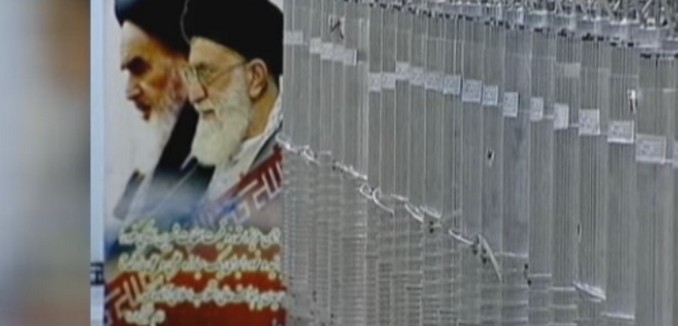Iranian leaders’ recent statements about the country’s nuclear program suggest that it is not strictly intended for civilian purposes, which would mean that the world must impose restrictions on Iran’s nuclear-related purchases, a former high-level official of the International Atomic Energy Agency (IAEA) wrote on Sunday.
Mohammad-Javad Larijani, a foreign policy advisor to Supreme Leader Ayatollah Ali Khamenei, said last month that in order to deter a Western attack, Iran needs to give the impression that it can assemble a nuclear bomb within 48 hours. In response, former IAEA deputy director-general Olli Heinonen remarked that “this is not the language of a country that wants to build nuclear reactors simply to generate electricity.”
Heinonen expressed his concern that “Iranian officials continue to make statements about maintaining nuclear-weapons readiness” as the country expands its civilian nuclear program. Iranian President Hassan Rouhani recently reiterated his nation’s intent to build up to eight more nuclear reactors.
Last year’s nuclear deal allows Iran to have light-water nuclear reactors, but subjects new reactors to IAEA safeguards. But the safeguards “would not block or deter Iran proceeding with reprocessing [of civilian nuclear material]—especially after 15 years, when the main restrictions of the JCPOA expire.”
While the deal established “procurement channels” to ensure that the international community knows what materials Iran has acquired for its nuclear program, the purchase of these materials does not require prior approval from the Security Council. Effectively, this means that the nuclear deal places no “limitations on the scope and content of Iran’s light-water reactor program.”
Furthermore, Iran is only barred from reprocessing its spent nuclear fuel into plutonium for the 15-year duration of the nuclear deal. While Iran has expressed that it has no intent to reprocess its spent fuel and create weaponizable plutonium, “intentions may change with time.”
Because Iran can’t be trusted not to pursue military applications of its nuclear program, sales of nuclear-related materials and equipment must have language that ensures that it doesn’t exploit any loopholes, Heinonen wrote.
Any contracts between Iran and foreign countries for the provision of nuclear goods should require that the technology provider be able to intervene if Tehran uses the nuclear material for reprocessing to separate plutonium without prior approval from the technology provider. Such arrangements also cover the use of reactors, fuel manufacturing technologies, and single- and dual-use items.
Such conditions, Heinonen wrote, are not uncommon in the nuclear industry. Canada and Australia have language in their contracts with other nations that require prior consent before separating plutonium. Provisions like these should be written into all nuclear contracts with Iran, as well as language requiring the return of items if requested, Heinonen wrote.
[Photo: euronews (in English) / YouTube ]




